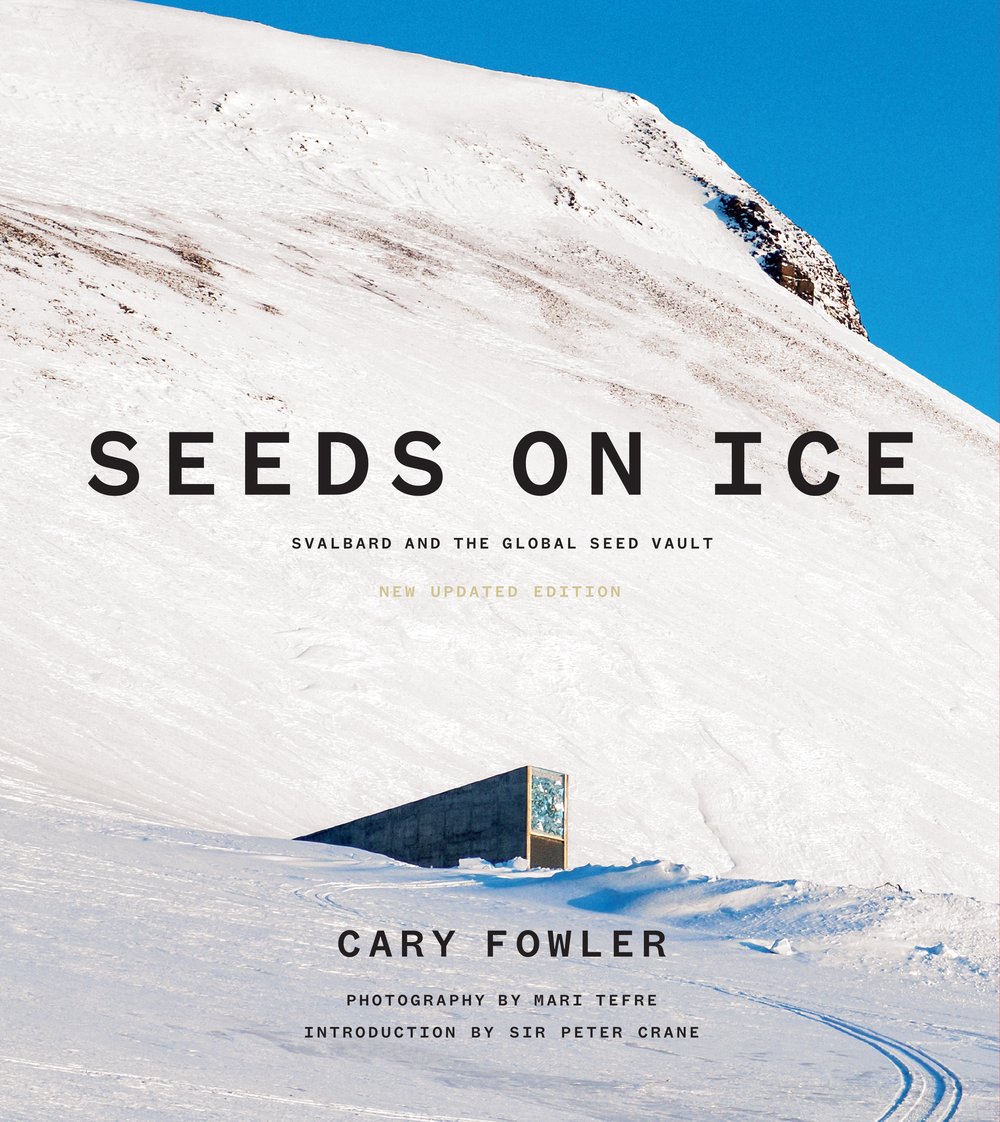Seeds on Ice
Svalbard and the Global Seed Vault

Closer to the North Pole than to the Arctic Circle, on an island in a remote Norwegian archipelago, lies a vast global seed bank buried within a frozen mountain. At the end of a 130-meter long tunnel chiseled out of solid stone is a room filled with humanity’s precious treasure, the largest and most diverse seed collection ever assembled: more than a half billion seeds containing the world’s most prized crops, a safeguard against catastrophic starvation.
The Global Seed Vault, a visionary model of international collaboration, is the brainchild of Cary Fowler, renowned scientist, conservationist, and biodiversity advocate. In Seeds on Ice, Fowler tells for the first time the comprehensive inside story of how the 'doomsday seed vault' came to be, while the breathtaking photographs offer a stunning guided tour not only of the private vault, but of the windswept beauty and majesty of Svalbard and the enchanting community of people in Longyearbyen.
With growing evidence that unchecked climate change will seriously undermine food production and threaten the diversity of crops around the world, Seeds on Ice offers a personal and passionate reminder that we shouldn’t take our reliance on the world of plants for granted – and that, in a very real sense, the future of the human race rides on this frozen and indispensable biodiversity.

Morgan Carrington 'Cary' Fowler Jr. is an American agriculturalist and the former executive director of the Crop Trust, currently serving as a senior advisor to the trust. On May 5 2022, Dr. Fowler joined the U.S. Department of State as U.S. Special Envoy for Global Food Security.
Peter Crane's work focuses on the diversity of plant life: its origin and fossil history, current status, and conservation and use. He served as the Carl W. Knobloch Jr., Dean of the Yale School of Forestry & Environmental Studies (now the Yale School of the Environment) from 2009 until 2016. From 1992 to 1999 he was director of the Field Museum in Chicago with overall responsibility for the museum's scientific programs. During this time he established the Office of Environmental and Conservation Programs and the Center for Cultural Understanding and Change, which today make up the Division of Environment, Culture, and Conservation (ECCo). From 1999 to 2006 he was director of the Royal Botanic Gardens, Kew, one of the largest and most influential botanical gardens in the world. His tenure at Kew saw strengthening and expansion of the gardens' scientific, conservation, and public programs. Dean Crane was elected to the Royal Society (the U.K. academy of sciences) in 1998. He is a fellow of the American Academy of Arts and Sciences, foreign associate of the U.S. National Academy of Sciences, a foreign member of the Royal Swedish Academy of Sciences, and a member of the German Academy Leopoldina. He was knighted in the U.K. for services to horticulture and conservation in 2004. Dean Crane currently serves on the Board of the Global Crop Diversity Trust, the Missouri Botanical Garden, the Chicago Botanic Garden, the Lady Bird Johnson Wildflower Center at the University of Texas, and the Gaylord and Dorothy Donnelley Foundation.
Jim Richardson is a photographer for National Geographic Magazine and a contributing editor for its sister publication, TRAVELER Magazine. Richardson has photographed more than fifty stories for National Geographic.
